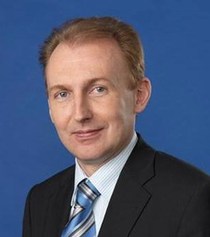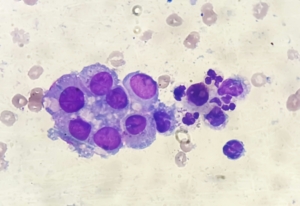
Erik Bogsch: Biosimilars and biologics for Europe and the world
Twenty-eight percent of the products given marketing authorisation between November 2010 and October 2011 in the US and one-third of all the new drugs in the EU have biotechnological origins. And experts unanimously agree that the market share of biotechnology products will continue to grow in the future. While the small-molecule drug market is predicted to expand by 3.9% annually between now and 2015, the market for biopharma products is expected to grow by more than 10% a year.
The trend is further bolstered by the fact that approximately one-third of current clinical development projects are of biotechnological origin. According to expert estimates, seven of the world’s top ten drugs will be of biotechnological origin by 2016. Based on the above, it can be firmly stated that biotech medicines are making a substantial contribution to the world’s healthcare system, including that of Eastern Europe.
The most appropriate way to ensure affordable biological medicines is the use of biosimilar versions of new biological entities after patent protection has run out. These products have a very similar biological profile including efficacy, safety and tolerability and they are, of course, cheaper. The EU was the first to introduce this type of regulatory pathway, but now several other countries, including the US and Japan, apply a regulatory approach that differs in only minor ways.
These forecasts and data unequivocally support Richter’s strategic decision to set up a biotechnology portfolio. Our aim is to create a complex and competitive biopharma line that will help expand the company’s portfolio with high added-value products, and we are making great progress in establishing the infrastructure supporting the development of biosimilar products. In 2007, Richter and Helm AG established a joint venture for the development and manufacture of microbial proteins. A biotechnology pilot plant with the capability to develop biosimilar versions of monoclonal antibodies went operational at our Budapest site in 2009. Most importantly, Richter’s new biotechnology plant in the Hungarian city of Debrecen was completed and officially inaugurated in April. The state-of-the-art 84m facility will initially produce samples for clinical tests with the use of mammalian cells, and will begin to manufacture drugs for treating human diseases in 2014. The plant will later produce proteins and antibodies for fighting cancer and chronic inflammatory diseases.
The governments of nearly all CEE countries have recognised the high priority and important role of biotechnology among innovative technologies, and some of them (including Hungary) have made it a vital part of economic development plans. In this respect, Richter’s strategic move was definitely in harmony with the intention of CEE countries and, in a wider context, the world itself.
Exploring new areas is always a risky proposition. Still, I am confident that Richter’s forward-looking innovative spirit will help us achieve our goal: a biosimilar-enforced product portfolio that can help to improve quality of life for even more patients, whether they live in Eastern Europe or anywhere else on the planet.
Erik Bogsch
Erik Bogsch is the Managing Director of Gedeon Richter Plc., a leading European specialty pharma company, as well as Chairman of the Board at the Hungarian Pharmaceutical Manufacturers Association. He holds a degree in chemical engineering and economic engineering. Bogsch began his career at Richter in 1970 in R&D managerial positions, and became CEO in 1992. He was fundamental in turning the firm into a major multinational company. His achievements and efforts to promote Hungarian innovation have been recognised with a number of awards.


 Unsplash+
Unsplash+
